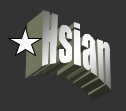
Chapter 10
We slept until noon, when Col. Coleman sent for us. Our
locomotive was confirmed as destroyed, together with one boxcar and the
tender, which had burned. All of the other boxcars were reported
to be heavily damaged. Col. Coleman was a very reserved person,
but when he congratulated us, he seemed to be genuinely pleased by what
we had done. Right away, we asked him to let us stay in Hsian to
work with his day fighters. so as to institute night attacks after the
day fighters had to leave an active area. The colonel agreed,
except that he said we would first have to go back to Chengtu and the
426th for orders to implement a transfer to his wing.
We told the colonel about our popularity problem with the squadron
leadership, and expressed concern that we wouldn't be assigned back to
Hsian. So Col. Coleman provided us with a letter to our squadron
commander requesting specifically that Ab and I be given assignment to
his wing in Hsian. For added insurance that we would return, we
left most of our gear and our airplane in Hsian and caught an ATC
flight that day for Chengtu.
Back at the 426th we had accumulated mail to read and reply to.
Most of the guys were glad to see us. Capt. LeFever, the awards
officer, told us we would be put in for a Silver Star when confirmation
of the Nanchang victory came in, and we had been put in for a second
air medal for successful intruder missions. We didn't see our CO,
Maj. W. C. Hellriegel, until the next morning.
Hellriegel was glum when we reported, which was nothing new. We
gave him Col. Coleman's letter and asked if we could have orders cut
assigning us to the Hsian fighter wing, per Col. Coleman's
request. Hellriegel gave us an instantaneous "NO!," saying that
we should have come back from Laohokow two weeks ago, and we had had
our share of combat -- that it was someone else's turn. This was
coming from a guy who, as far as we knew, had never flown a single
mission in night fighters. We argued, but Maj. Hellriegel didn't
like us, or so it seemed, and we didn't prevail. Still, we hadn't
taken Col. Coleman into account. When he found out that another
night fighter crew was being assigned to his wing, he sent word back to
Hellriegel that any crew other than Absmeier and Smith would be sent
back, and that if he couldn't have us, Hellriegel would have to explain
to the 14th Air Force Headquarters why his request was denied.
We were ordered back to Hsian right away and were on an ATC flight out
the next day. Among the other passengers was a bird colonel who
seemed important. As we approached Hsian, he was in and out of
the flight deck cockpit of the C-54 we were flying in, talking to Hsian
on the radio. Once on the ground, he was the first one down the
boarding ladder, where a jeep picked him up and sped over to where a
flight of P-51s had been waiting for take-off at the end of the
runway. When the jeep reached the aircraft, with their engines
running, the colonel jumped out, ran to one of the fighters, got the
pilot out, climbed in himself and took off on the mission.
The colonel was the wing commander we hadn't met. He was Gen.
Chennault's son. I don't recall his first name, as he was always
Col. Chennault to me. He had flown close to 200 missions and had
been shot down once before that day, when he got shot down again.
While on a strafing run, his P-51 took a hit in the coolant tank.
When the P-51 engine was without coolant, it wouldn't continue to
function. He had time to climb a short distance away from the
target area before the engine seized, and he bailed out. His
wingman marked his location and came back the next morning in an L-5,
landed and picked him up. We felt proud to be connected with an
outfit with gung-ho commanders like Chennault and Coleman. But
our first impression wasn't entirely correct.
From what we had seen so far, we thought Hsian would be like an
extension of Laohokow -- lots of fast action and excitement -- but we
were mistaken. We fond ourselves committed to play a kind of
satellite part in a carefully planned, sometimes inspired, sometimes
routine kind of war that belied Col. Chennault's first-day show of
derring-do. The reason was logistics. Hsian was at the
extreme end of the U.S. supply line -- the last outpost in the
Nationalist held section of northeast China. The Great Wall was
just 230 miles to the north of us, separating China and Mongolia.
The Gobi Desert was close to Hsian. The shortage of every wartime
essential from gasoline to ordnance meant that a lot fewer missions
were flown in Hisan, with more careful planning of each mission to
maximize results. Col. Chennault and Col. Coleman were hard
taskmasters, making their presence felt at every critique or mission
debriefing. They wanted the mission's planned objectives
met. They insisted on the highest level of performance from
aircrews on down.
